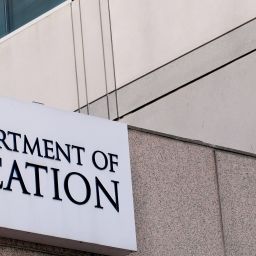

Derryck Hains
Derryck is a Director in McAllister & Quinn’s Advanced Technology Practice. Derryck provides strategic intelligence (SI) support to the firm’s industry clients on the forefront of technology innovation. In addition, he works to align clients’ priorities with federal sponsors and programs.

Alec Simantov
Alec is a Director in the McAllister & Quinn Research Universities Practice. Alec leverages his expertise on the federal budget and Congress to provide strategic intelligence and oversight on legislative and policy developments, focusing on R&D, science, and higher education policy.
New Funding Opportunities for SBIR/STTR Frozen
Despite the recent deal to fund the government through January 30, 2026, the legislation signed by President Trump did not contain a reauthorization extension of funding for the Small Business Innovation Research (SBIR) and Small Business Technology Transfer (STTR) program. The program’s authorization lapsed on October 1. As a result, federal agencies may still accept applications and award projects under active solicitations, but all new funding opportunities are frozen until Congress reauthorizes the program. Some agencies, like NIH, have already announced early expiration of funding opportunities as a result.
Competing Bills Create Uncertainty
There are competing proposals to reauthorize funding for SBIR/STTR in Congress. The scope of changes proposed varies from a “clean” 1-year extension with minimal changes to the program, to legislation like Senator Joni Ernst’s (R-IA) INNOVATE Act which would bring major changes to the program, including:
-
A lifetime cap of $75 million in combined Phase I/II funding per organization including subsidiaries.
-
Principal Investigators (PIs) can only serve one application to the same solicitation; Organizations may only submit up to three applications per solicitation; and
-
New “Phase 1A” awards for new entrants as an open topic solicitation; Agencies would be required to spend 2.5% of Federal SBIR funds for this new award.
The only bill to clear either chamber this year is H.R. 5100, which passed the House unanimously on September 15. The bill is a clean 1-year extension to the program with no changes to the program’s operation. The bill now awaits action in the Senate where it was referred to the Small Business and Entrepreneurship Committee where Senator Ernst is the current Committee Chair.
Ernst’s bill is supported by a coalition of technology small business owners and others including the Foundation for American Innovation. Committee Democrats however voiced support for H.R. 5100 . The are threatening to block Ernst from seeking a unanimous consent vote on the Senate floor, leaving her bill’s fate in limbo.
What’s next for SBIR/STTR?
Politico recently reported that Ernst is now blocking efforts to pass the 1-year extension, instead pushing for the reforms in her bill. Congress is focused on completing the remaining full year funding bills for fiscal year 2026 along with other must pass legislation before January. Heading into the holiday season the Congressional calendar will narrow considerably. President Trump and Senate Majority Leader John Thune (R-SD) have yet to weigh in making the timeline and direction of SBIR/STTR reauthorization unclear.
Discover How We Can Help
McAllister & Quinn’s team of federal funding and policy experts can assist in tracking the changes to the SBIR/STTR programs and position your organization to leverage this program once it unfreezes. Contact us if you would like to read our full analysis of Senator Ernst’s INNOVATE Act, or to discuss how the proposed changes may impact your organization.







